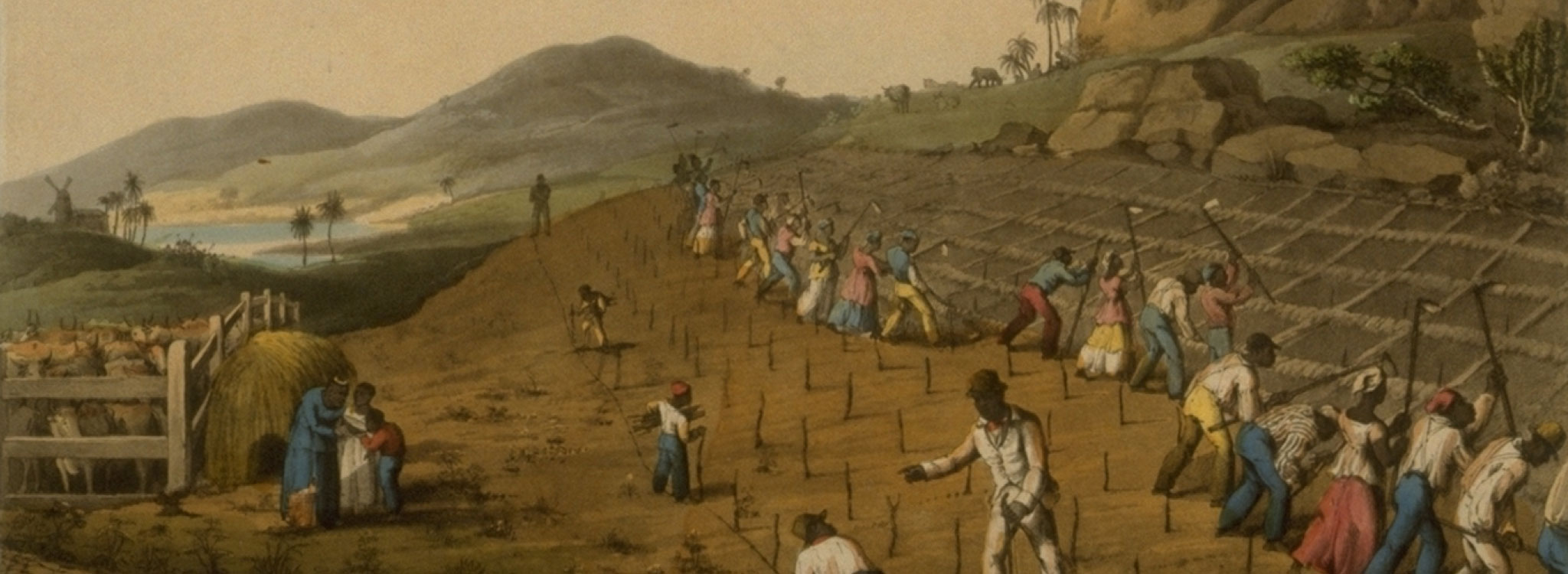Juan Bautista Whitten (sometimes spelled Witten) was a sergeant in the free black militia who helped defend Spanish Florida from various threats. He spent perhaps the first twenty years of his life in Guinea, the next ten in South Carolina, another thirty-five in Spanish Florida, and ended his days in Matanzas, Cuba.
Whitten estimated he was born around 1756 in Guinea, West Africa. In the 1770s he was carried across the Atlantic by slave traders to Sullivan's Island, South Carolina. Charleston planter Peter Whitten purchased Whitten and named him Big Prince, perhaps in reference to his great size. Big Prince became a carpenter on Whitten's plantation and by 1777 he had formed what would be a lifetime bond with an enslaved “county-born” woman named Judy on a neighboring plantation. Within two years Judy and Prince had a son named Glasgow and a daughter named Polly.
In the tumultuous period of the American Revolution, the Whitten family was seized and moved to Georgia by a loyalist commander. At the end of the war, Florida was returned to Spain, giving the Whittens new hope. After several failed attempts, they escaped across the St. Marys River into Spanish Florida in 1785.
Taking advantage of a religious sanctuary policy, the Whittens and other escaped slaves stated that they fled to Florida to become Catholics and were accepted into the colony as free subjects of the Spanish Crown. All the Whittens were baptized. Prince became Juan Bautista, Judy took the name María, and the children became Domingo and María Francisca.
The Whittens quickly took full advantage of their new free status and their rights as Spanish subjects. Francisco opened a shoemaking shop and trained black apprentices while María raised pigs for sale and trained girls to be domestics. Both used the legal system to protect their rights. The Whittens’ economic successes and 1798 marriage in the Catholic church helped improve their social status.
Prince Whitten joined the militia and saw frequent service against invading French and American forces, as well as local Native Americans. He received a land grant from the Spanish government as reward. Spanish sovereignty in Florida ended on July 10, 1821. Anticipating a shift in racial politics, Whitten led most of Florida's polyglot free black community into exile in Cuba where once again they remade their lives.
Whitten died in Cuba sometime before 1835, when his estate was awarded compensation by the U.S. government for losses during the “Patriot War” in Florida.
Read the full, original biography by Jane Landers in the African American National Biography.
Online Resources
María Rafaela Whitten https://enslaved.org/fullStory/16-23-101316/
Niven, Steven. “Proud and Free in Spanish Fla.: Juan Bautista Whitten Led a Black Militia.” The Root, February 29, 2016. https://www.theroot.com/proud-and-free-in-spanish-fla-juan-bautista-whitten-l-1790854425
Bibliography
Bibliography
Cusick, James G. The Other War of 1812: The Patriot War and the American Invasion of Spanish East Florida. New Perspectives on the History of the South. Gainesville: University Press of Florida, 2003.
Landers, Jane. Atlantic Creoles in the Age of Revolutions. Cambridge, Mass: Harvard University Press, 2010.
Landers, Jane. Black Society in Spanish Florida. Blacks in the New World. Urbana: University of Illinois Press, 1999.
Landers, Jane G.. "Whitten, Juan Bautista “Big Prince”." African American National Biography, eds., Henry Louis Gates, Jr. and Evelyn Brooks Higginbotham. Oxford African American Studies Center, http://www.oxfordaasc.com/article/opr/t0001/e4122 (accessed Tue Sep 10 13:50:31 EDT 2019).
Landers, Jane. "Whitten, Juan Bautista “Big Prince”." Dictionary of Caribbean and Afro-Latin American Biography , eds. Franklin W. Knight. and Henry Louis Gates, Jr. Oxford African American Studies Center, http://www.oxfordaasc.com/article/opr/t456/e2202 (accessed Tue Sep 10 14:00:30 EDT 2019).
Author
Jane G. Landers
Adapted by
James Almeida and Steven J. Niven
Contributing Institutions
Hutchins Center for African & African American Research, Harvard University, Cambridge, MA.
Oxford University Press (USA) African American Studies Center.





